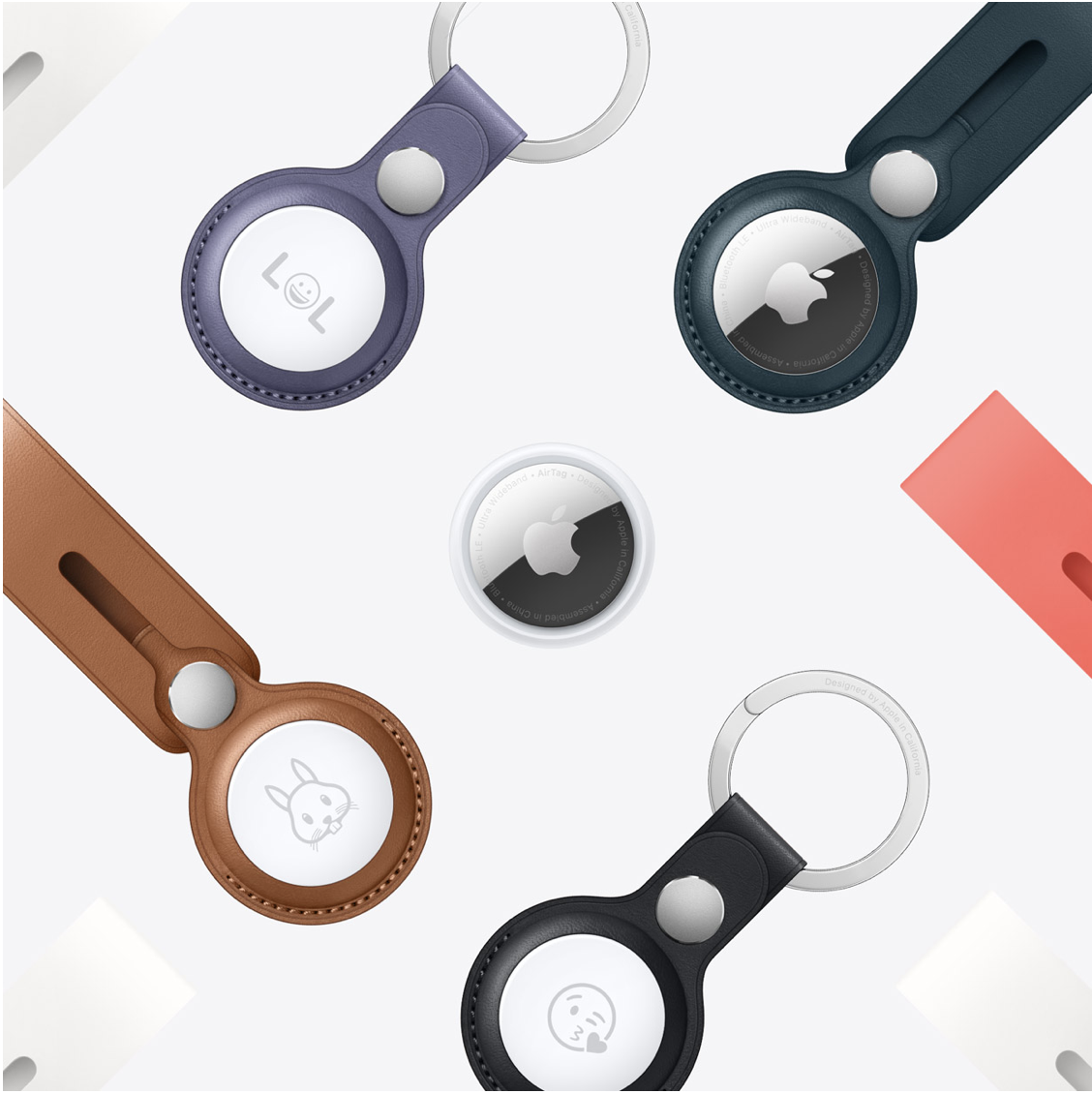There’s no lack of chatter around ADHD, so much so that stereotypes abound: We veer off into a dozen tangents when trying to tell a story. We can’t seem to ever find our damn keys. Squirrel!
But among all the noise, there’s one topic that’s rarely discussed yet is one of the most challenging parts of this diagnosis: how ADHD affects relationships—and, specifically the ADHD effect on marriage.
I pride myself on being a supportive, loyal friend and partner, but years of untreated ADHD made it difficult for me to show up for others in the ways I wanted to. I would buy cards and gifts and never get around to mailing them. I would forget important details from conversations and take days to text back. I was routinely late for plans and reservations.
And when my husband and I first moved in together, he was not thrilled with my “piles” system of organizing my belongings. It’s exactly what it sounds like: I would just leave my stuff in different piles around our 500-square-foot apartment. I swear I had a method!
All things considered, my friends, family members, and husband have been surprisingly patient with me over the years, if not (rightfully) annoyed and frustrated at times. Before my ADHD diagnosis at age 33 when I learned the ways it impacted executive function, I just assumed this was a terrible character flaw.
If you’re wondering what “executive function” even means, it’s a set of mental skills that help in everyday life, including important things like the ability to plan, pay attention, remember details, and juggle several tasks at once. If my executive function were, well, functioning properly, I’d maybe be able to get my shit together enough to mail a birthday card or wedding RSVP by the requested date. Or possibly show up to brunch on time—for once.
Executive function issues aside, people with ADHD also struggle with emotional regulation (the ability to control their emotional responses), which can be off-putting. Couple that with inattentive-type ADHD—the type where people get easily distracted and have trouble remembering routine tasks—and you’ve got a recipe for #RelationshipProblems.
This often starts in childhood. Kids with ADHD are statistically less likely to make and maintain close friendships, often because they have a tough time listening, can be impulsive, and act out. This peer rejection, per a study in the Journal of Abnormal Child Psychology, can lead to mental health consequences down the road, including anxiety, depression, and substance abuse issues, as well as struggles with (mm-hmm) relationships.
If you’re dealing with any of this, we hope this piece makes you feel (at the very least) seen and less alone. It always helps to understand more about why we act the way we do—you can also share with a BF, GF, or BFF! And remember this: You aren’t intentionally flaky, rude, or selfish. You’ve got ADHD, and there are ways to improve this aspect of the condition.
Relationship Status: Not Great
If you’ve ever had a friend or partner with ADHD, their conversational tune-outs can make you feel like they give no craps about what you have to say. Or that they’ve forgotten your anniversary because they’re ego-centric. Typically, none of this is true. Reality is, you’ve got a different kind of brain.
“Sometimes, it really just is about brain-based differences in executive functioning that come down to things like remembering to text back or call on a friend’s birthday or follow through on that thing you promised your partner you’d do,” explains Michelle Frank, Psy.D., clinical psychologist and author of A Radical Guide for Women with ADHD.
Basically, executive function is the “conductor” of all cognitive skills and relies on working memory, mental flexibility, and self-control. People whose executive function is malfunctioning often have difficulty planning, organizing, remembering instructions, managing their time, and prioritizing, and can get overwhelmed by big projects. (My therapist sent me this video to help explain it all, which was super helpful when I got diagnosed.) Pros believe that people with ADHD struggle in this area because of differences in their prefrontal cortex, the area of the brain that controls executive function.
And while it doesn’t feel great for anyone when they realize they forgot a birthday or didn’t buy a baby gift in time for a shower, people with ADHD tend to let this snowball, says Dr. Frank, which can really harm relationships. It happens because of the brain-based difference, “but what we see happening is then it becomes a bigger thing because of how we choose to either actively deal with the relational consequence or avoid it,” she explains.
People have a choice to apologize in the moment and try and make amends, or avoid the person altogether for weeks or months because they’re ashamed and think the other person hates them. “That is typically where a pretty small rupture in the relationship becomes a much bigger problem—how we deal with those moments of misattunement,” Dr. Frank says.
Dr. Frank counsels patients on memory strategies like reminder apps (even the one that comes standard on iOS is clutch) and using a calendar to mark everything down. But from time to time, they still might forget an important date, or mismanage their schedule and never pick up the milk and Cheerios like they’d promised. In these instances, the key is communicating the issue and working to repair it in a healthy way.
People with ADHD tend to live with a lot of shame, so they can get defensive when they feel like they’re being criticized. This can spiral into a spiral, which can lead to a pattern of unhelpful dialogue with their partner—or an altogether shut-down.
So what’s the answer? Two main things to look at, per Dr. Frank:
- Which skills, strategies, and environmental supports will help manage your ADHD symptoms
If you are forgetful, maybe that’s downloading a reminder app like Due – Reminders & Timers. Or, if you get easily overwhelmed and need to organize your thoughts and ideas, the app SimpleMindPro. It might also be helpful to invest in a digital planning tool like Sunsama or Any.do. Remember: It may take some trial and error to find the tools and techniques that best fit your brain, so don’t get discouraged if something doesn’t work right away. - How you can get better at repair by communicating your experience and needs
This could be asking your partner to send you a reminder text (or two) while you’re out running errands so you don’t forget those computer supplies they need, or letting a friend know upfront that you aren’t ignoring them—you simply have trouble returning texts in a timely manner.
There are other ADHD-related brain differences that can cause relationship drama, including talking too much or too fast and interrupting others. Or, on the flip side, we can zone out during a conversation and stumble over stringing a thought together.
People with ADHD also tend to have impulse control issues, which can lead to awkward situations of saying something out loud without thinking it all the way through. Welp! As you can imagine, speaking without a filter can come off as offensive or rude, even if that’s not your intention.
How ADHD Energy Affects Relationships
Those of us with ADHD tend to have big feelings and can struggle with emotional dysregulation, which means having a hard time controlling our emotional responses. In fact, a meta-analysis published in BMC Psychiatry found that about 70 percent of adults with ADHD experience symptoms such as low frustration tolerance (the inability to cope with frustration or inconvenience), irritability, and rapid changes in mood.
This can also swing in the opposite direction, when peeps with ADHD get overly excited, energetic, and feel hyperactive (cue the “H” in ADHD).
Sign up for our free newsletter
Legit tips and cool copes, delivered straight to your inbox.
By completing this form you are signing up to receive our emails and can unsubscribe anytime.
How this all plays out? It can be hard for other people to match your energy or mood, which college student Abby Yoder, 20, knows all too well.
“Meeting friends, I tend to get really excited. I love spending time with my friends, I love seeing them,” says Yoder, a Mental intern. “They call it the golden retriever energy.”
While Yoder gets legit psyched to see people, a lot of her friends have a more subdued vibe, which is far from her norm. “It’s very difficult to keep my energy steady,” she says. “I’m either at a 10, or I’m at a 0 and I’m exhausted and I don’t even want to talk to anyone.”
Getting on Vyvanse, a prescription stimulant, has helped Yoder focus and complete her school work. But it also changes her mood in a way that can cause friction with, in particular, her roommates.
“[Vyvanse] does kind of make me a bit moody,” Yoder says, adding that her medication can propel her into hyper-focus mode. “People tend to think that I’m in a bad mood, and the reality is, I’m so hyper-focused on something because that’s what my medication does.” The results: She is sometimes in her room for long periods of time and not wanting to hang or chit-chat.
Fortunately, Yoder has met other people who have ADHD, friendships she calls “rewarding” and “enjoyable.” “We just feed each other’s energy,” she says. “We’re always so high-energy and happy, giggling and just having the best time.” And while she and her ADHD posse are so enthused to see each other and “talk nonstop” for the first couple of hours, they also get how emotionally draining it can be, and that it’s normal to be exhausted by the end of the night.
“It’s difficult when you have a friend who’s not understanding of that,” Yoder says—and not just from an energy-matching perspective. She’s found it difficult for those without ADHD to be empathetic of what it’s like to be on a stimulant medication.
As far as dating goes, Yoder says it’s important to be authentic about who you are upfront and seek out people who like you for everything you are.
“I tend to not hold back a lot, and so I tend to attract people who like how over-the-top I am,” she says. “I kind of learned that as a young teenager, to just put myself out there and not suppress my personality because then when that actually comes out, I don’t want to freak anyone out.”
She tends to date guys who are low energy, which complements her personality and helps calms her down a bit. It’s helpful to find someone who can be the yin to your yang.
How ADHD Affects Relationships with Parents
That shame we talked about earlier? It’s often caused by years of negative internal dialogue—“you’ll never get it together” or “why can’t you just focus like everyone else”—and trying to overcompensate by taking on extra responsibilities or being high achievers in school.
This can cause a rift in your relationship with your parents, in particular. If you grew up hearing that you were careless or not living up to your potential, or your ‘rents criticized you for being late all the time and losing important items, you might still carry that criticism with you. And it can breed resentment, especially if you’ve felt like these behaviors were out of your control.
For Yoder, she grew tired of being told why she needed to take her prescribed Vyvanse every day, even though it suppressed her personality and made her feel robotic. “My parents, ever since I was a kid, would be like, You have to take this medication every day because it affects the people around you, and you don’t want to annoy the people around you and you don’t want to be a burden,” she says. “When someone makes you do something every day, you’re gonna hate it. And so I hated it.”
GOTTA READ: How to Tell Your Parents You Need Therapy—At Any Age
She acknowledges that her parents were coming from a good place and trying to help—but once she left for college and started living on her own, she realized taking a stimulant every day wasn’t the ideal dose for her. Now, she’s on half the dosage she was taking in high school, and only takes her medication Monday through Thursday to help her concentrate on school work and other obligations. (Mental recommends always talking to your doctor before changing anything about your medication routine.)
On the weekends, without her medication, Yoder feels like she can be herself. “There are people who will be okay with how I act and how energized I am and happy-go-lucky I am, and there are people who will accept that and love that about me,” she says.
Trying and Errors
It’s easy to get frustrated with someone when it seems like they aren’t listening to you, or they forget something major you told them yesterday. But there’s definitely a difference between someone who is blatantly ignoring you or has executive function issues and symptoms of ADHD.
“You can usually tell when somebody is just not nice and [being] inattentive,” says Laurie Singer, LMFT, a therapist and behavior analyst who has ADHD herself. For example, if a person makes snide comments to put you down or never asks you about yourself, they might not have your best interests in mind. But if they don’t respond to a few texts or DMs in a row, it could be because they got distracted. “I think not returning a text is disrespectful, right? But we should all be given some slack sometimes because we all make mistakes.”
GOTTA READ: What Is Mental Filtering? And How You Can Stop It from Destroying Your Mood
If you have a friend or partner with ADHD, Yoder encourages you to look at all the ways they do hype you up and express their love. “I do care so deeply, I show people that I care every single day,” she says. “Really pay attention to the way [people with ADHD] show they care because they might not be on time, they might not remember a conversation you had, but they say ‘I love you’ all the time or they throw you the most amazing party. There’s so many other ways they show love and that shouldn’t go under appreciated.”
Singer says if you have a loved one with ADHD and their pattern of forgetfulness or inattentiveness starts to upset you, it’s important to have a frank conversation about it—without blame. “It’s [about] communication and not holding things in [until you] lash out at somebody,” she says.
When you’re the one with ADHD, be willing to open up to your loved ones about how the condition impacts you and what it feels like. But also: Give yourself a break. Instead of telling yourself that you’re a bad friend, a crappy partner, or “just that person who will never remember the important details,” says Dr. Frank, try and combat that negative self-dialogue.
This is where therapy comes in, and cognitive behavioral therapy (CBT) can be especially effective in helping change negative thought patterns. A therapist can also help you achieve balance: between accepting yourself and the reality of how your brain works, while also taking agency over how you interact with others.
Dr. Frank suggests asking yourself this: What do I need in order to show up in ways that are aligned with my personal authentic values—what really is important to me, and what isn’t? This could mean prioritizing friends’ birthdays by putting a recurring event in your calendar app or setting reminder alerts to mail a gift when a loved one is pregnant.
It takes some reflection to establish these priorities, then some work to put systems in place to execute them, but with practice, it’s achievable. The most essential thing? Don’t beat yourself up if something slips through the cracks.
READ NEXT: Best Weighted Blankets That Aren’t Gray
Executive Function Info (1)
Executive Function & Self-Regulation. Center on the Developing Child. Harvard University.
Kids With ADHD and Friends
Mikami AY. The Importance of Friendship for Youth with Attention-Deficit/Hyperactivity Disorder. Clinical Child and Family Psychology Review. June 2010.
Peer Rejection and ADHD
Mrug S, Molina BS, Hoza B, et al. Peer Rejection and Friendships in Children with Attention-Deficit/Hyperactivity Disorder: Contributions to Long-Term Outcomes. Journal of Abnormal Child Psychology. August 2012.
Executive Function Info (2)
Barkley R. What Is Executive Function? 7 Deficits Tied to ADHD. ADDitude. October 3, 2019.
Emotional Dysregulation
Beheshti A, Chavanon ML, Christiansen H. Emotion Dysregulation in Adults with Attention Deficit Hyperactivity Disorder: A Meta-Analysis. BMC Psychiatry. March 12, 2020.
Parental Criticism of Childhood ADHD Symptoms
Musser ED, Karalunas SL, Dieckmann N, et al. Attention-Deficit/Hyperactivity Disorder Developmental Trajectories Related to Parental Expressed Emotion. Journal of Abnormal Psychology. February 2016.






